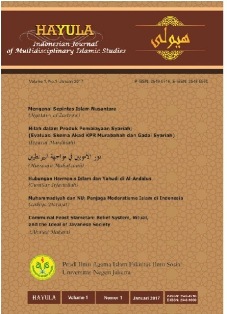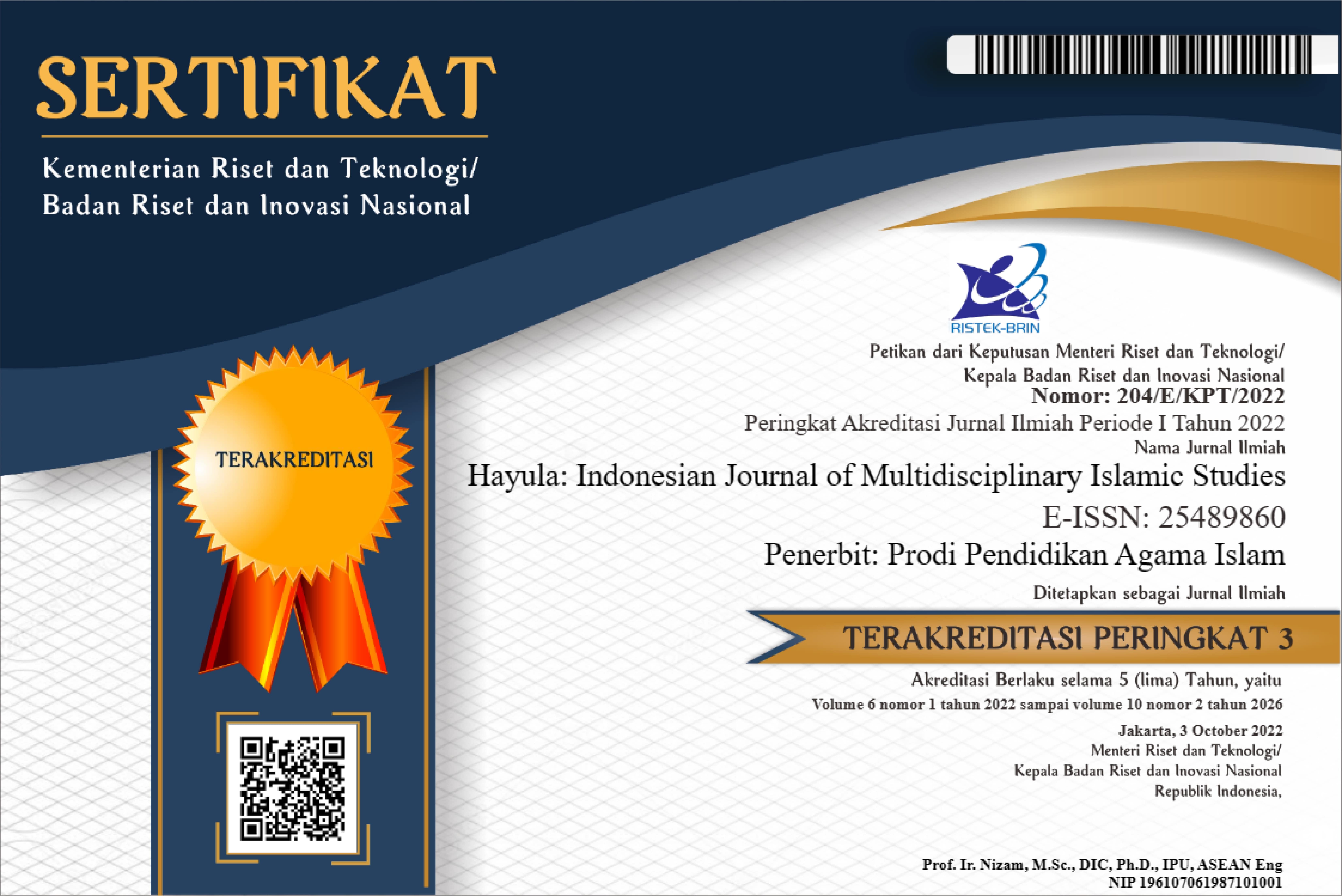Islam Moderat dan Islam Radikal dalam Perspektif Generasi Milenial Kota Surabaya
DOI:
https://doi.org/10.21009/004.2.04Keywords:
generasi milenial, Islam moderat, Islam radikal, teks, konteksAbstract
This paper examines the results of several previous studies that took formal education as an object of research with respondents from students and teachers in the Jakarta, Bandung and Yogyakarta regions, who agreed to a change in state ideology from Pancasila to the Islamic Khilafah and acts of violence in religion. As a test tool, the authors offer research objects to milenials in Surabaya with formal and non-formal educational backgrounds and social settings of various professional backgrounds, education, and ages between 17 and 30 years and with in-depth observation methods and interviews with FGD techniques (Focus Group Discussion) on 13 young people of the city of Surabaya on four regions in the city of Surabaya. The results of this study indicate; first, Milenial generation narratives about moderate Islam show religious experiences that are relaxed, light, peaceful, and flexible and radical Islam as Islamic behavior that cannot adapt to its environment. The source of the reference shifts from book literacy to digital literacy by utilizing social media content, Instagram, and Youtube. Third. the figure and inspiration also changed from the figure of the ulama to the figures who perform ‘hijrah’, both artists and young clerics, and entertaiment products that utilize digital media.
References
al-Athir, I. (1969). Ja>mi’ Us}u>l fi Ah}a>di>th ar-Rasu>l. Maktabah Dar al-Bayan.
as-Suyuti, J. (1994). Ja>mi' al-Ah}a>di>th ar-Rasu>l. Bairut: Dal al-Fikr.
Cambridge Advance Learners Dictionary. (2008). Singapore: Cambridge University Press.
Departemen Pendidikan dan Kebudayaan. (1989). Kamus Besar Bahasa Indonesia. Jakarta: Balai Pustaka.
Effendy, B., & Prasetyo, H. (1998). Radikalisme Agama. Jakarta: PPIM-IAIN.
Euben, R. L. (2002). Musuh dalam Cermin Fundamentalisme Islam dan Batas Rasionalisme Modern. Jakarta: Serambi.
Fadl, K. A. (2007). Selamatkan Islam dari Muslim Puritan. Jakarta: Serambi.
France, A. (2007). Understanding Youth in Late Modernity. New York: Open University Press.
Goddard, H. (2011). Menepis Standar Ganda Membangun Saling Pengertian Muslim Kristen. Yogyakarta: Qolam.
Hidayat, K. (2008). Atas Nama Agama: Wacana Agama dalam Dialog Bebas Konflik. Bandung: Pustaka Hidayah.
Kadir, M. A. (2003). Ilmu Islam Terapan Menggagas Paradigma Amali dalam Agama Islam. Yogyakarta: Pustaka Pelajar.
Lembaga Kajian Islam dan Perdamaian (LKIP). (2011). JAKARTA: LKIP.
Marschall, W. (1994). Text from the Island Oral and Written Tradition of Indonesia and the Malay World. Virginia: University of Berne.
Muhajir, A. (2018). Memahami Fenomena Revivalisme Islam Radikal Kontemporer. Jurnal Pemikiran Islam.
Pilcher, J. (1993). Mannheim's Sociology of Generations: an Undervalued Legacy. New York: Routledge.
Prensky, M. (2008). Digital Natives Digital Immigrants. Horizon MCB University, Vol. 9, No. 5.
Purnomo, A. (2009). Ideologi Kekerasan; Argumen Teologis Sosial Radikalisme Islam. Yogyakarta: Pustaka Pelajar.
Rapoport, D. (2001). Inside Terrorist Organizations. London: Frank Cass.
Sen, A. (2016). Identitiy and Violence the Illusion of Destiny. London: Penguin Books.
Thomas, S. M. (2015). The Global Resurgence of Religion and the Transformation of International Relation, The Struggle for the Soul of the Twenty First Century. New York: Palgrave Macmillan.
Wahid, D. (2014). Nurturing the Salafy Manhaj a Study of Salafi Pesantren in Contemporary. Belanda: Utretch University.
Downloads
Published
How to Cite
Issue
Section
License
Authors who publish with this Journal agree to the following terms:
- Author retain copyright and grant the journal right of first publication with the work simultaneously licensed under a creative commons attribution licensethat allow others to share the work within an acknowledgement of the work’s authorship and initial publication of this journal.
- Authors are able to enter into separate, additional contractual arrangementfor the non-exclusive distribution of the journal’s published version of the work (e.g. acknowledgement of its initial publication in this journal).
- Authors are permitted and encouraged to post their work online(e.g. in institutional repositories or on their websites) prior to and during the submission process, as it can lead to productive exchanges, as well as earlier and greater citation of published works.
Users/public use of this website will be licensed to CC BY







